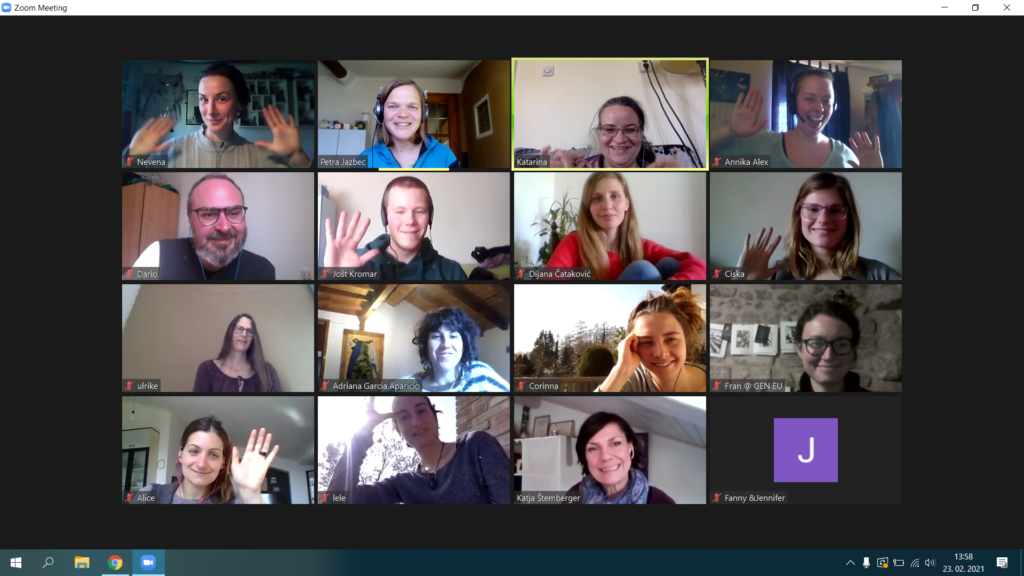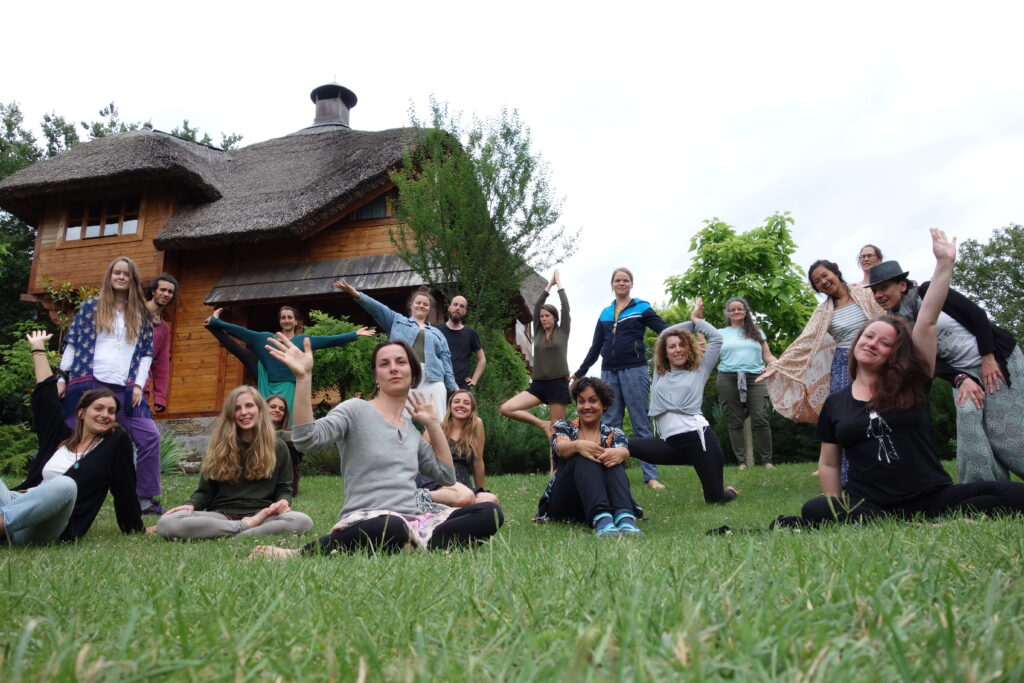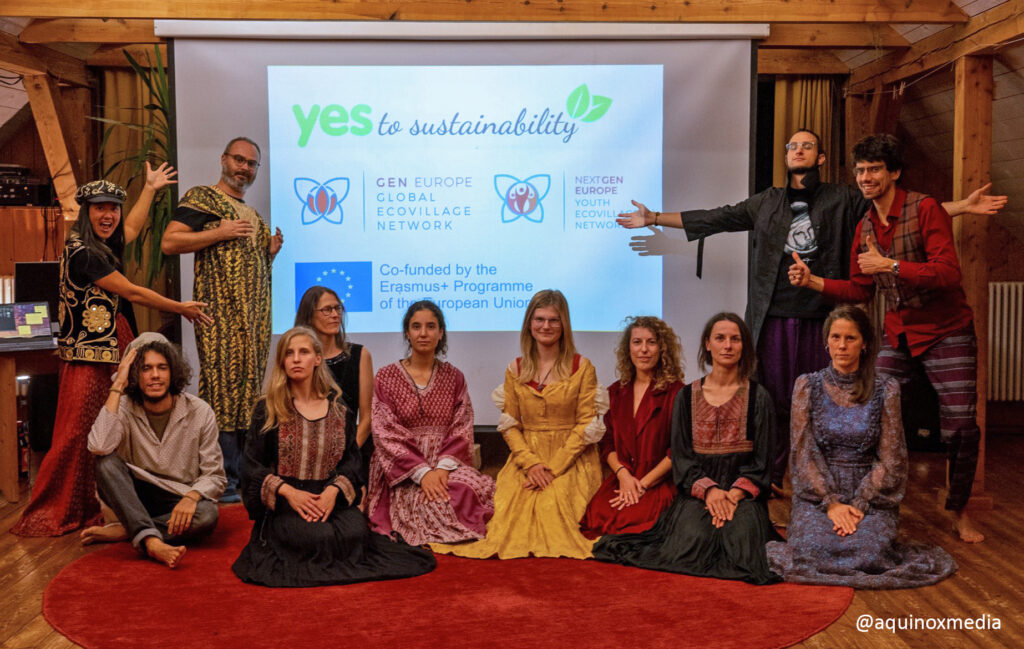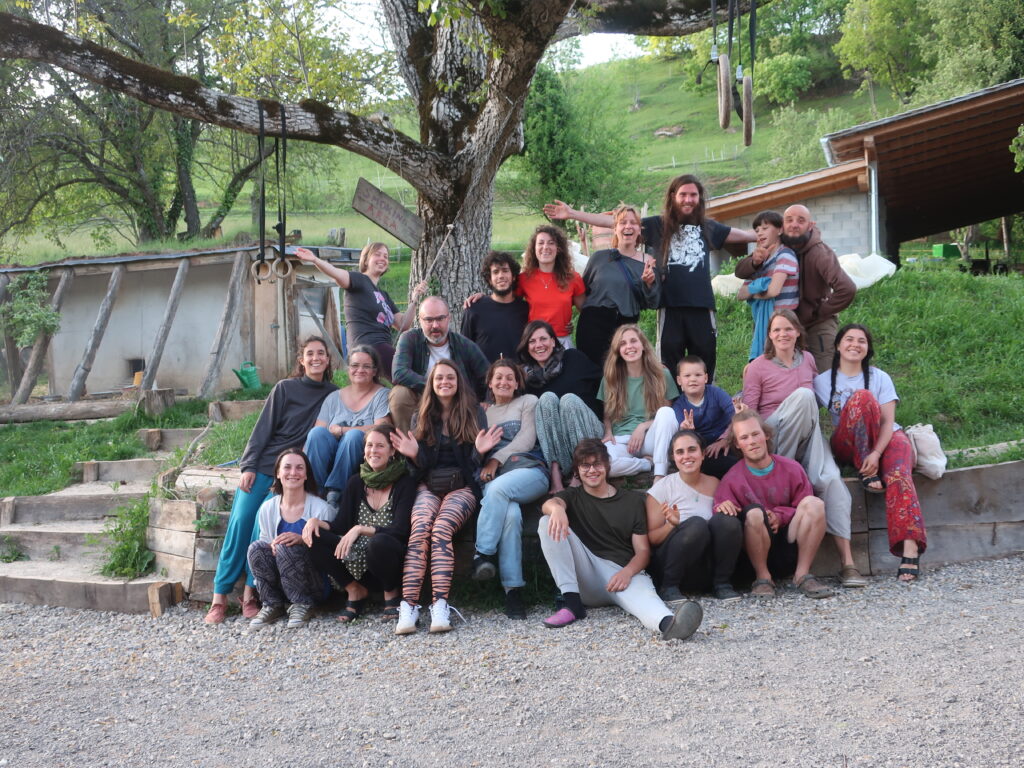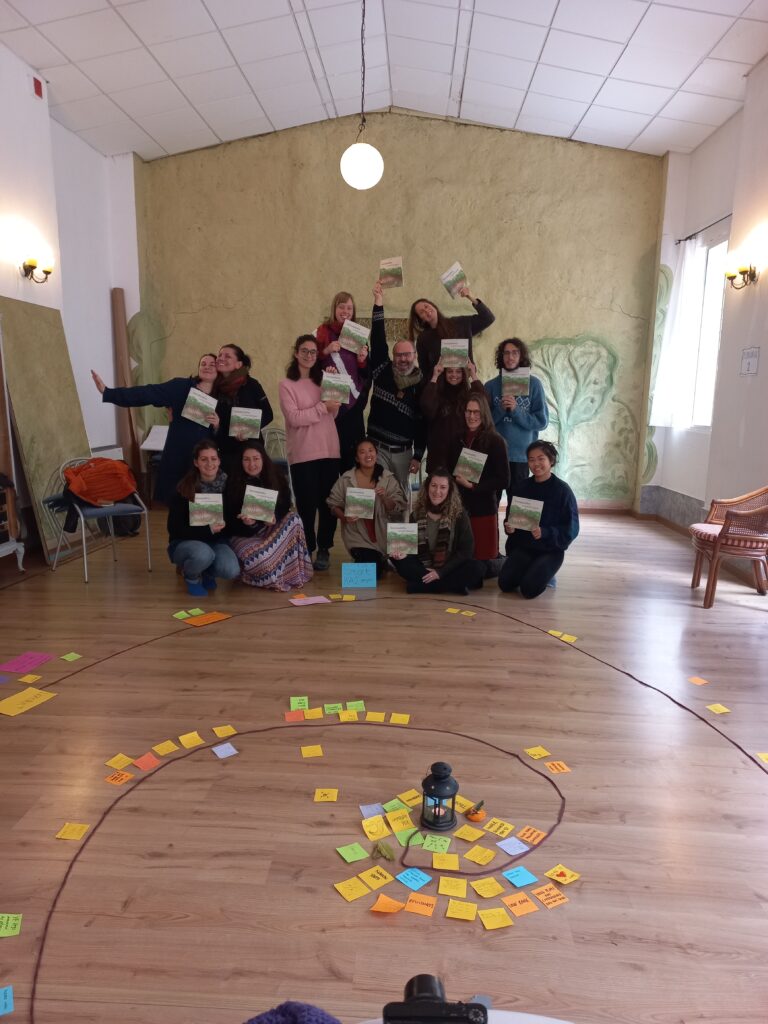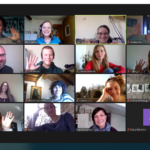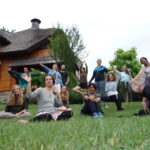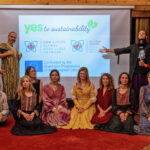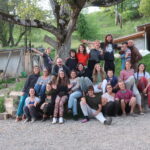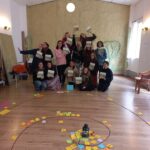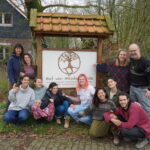Strategic Partnership
After 5 years of self-organization between the Yes to Sustainability network, it received funding from the ERASMUS+ programme to run a strategic partnership: a transnational project designed to develop and share innovative practices and promote cooperation, peer learning, and exchanges of experiences in the fields of education, training, and youth. The partnership ran from 2021 to April 2023 and the project partners were GEN Europe (European Ecovillage Network), RIVE (the Italian Ecovillage Network), RIE (Iberian Ecovillage Network), Zavod Veles, Zeleno Doba, GEN Netherlands and GEN Germany.
This strategic partnership was centered on strengthening the Yes to Sustainability network and increasing its impact by supporting young people in creating sustainability-focused youth exchanges and involving more young people as leaders and mentors in our networks. To do this end, the project created: a brochure, a mentoring scheme and an upgraded website as well as strengthened the Yes to Sustainability network. The partnership enabled the network to provide better support for young people, youth workers and organizations that ran youth exchanges and trainings.
Project Overview
The main goal of the project was to empower young people and connect them to the ecovillage and sustainability movement and give them a chance to experience that a different life is possible and that they can make a difference.
The long-term objective of the project was to make a contribution to creating a resilient, low-carbon society in Europe and keeping climate change within reasonable limits.
This strategic partnership was centered on strengthening the Yes to Sustainability network and increasing its impact by supporting young people in creating sustainability youth exchanges and involving more young people as leaders and mentors in our networks.
The partner organizations aimed at deepening their collaboration and sharing their experiences concerning sustainability youth exchanges and engaging more youth in the exploration of sustainable lifestyles. The project was funded by the EU through the Erasmus + programme KA2 (strategic partnership for youth).
